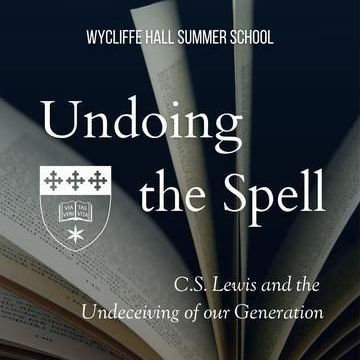New Musing: What's with the Chapters and Verses in the Bible?
The latest question I received:
"Do the chapters and verses in the Bible help us understand the structure of the message of a given book?”
(Check out the Musings page of susemcbay.com is my Q&A page - a place for people to submit questions they may have about life, faith, the Bible and theology, and space to submit your own question!)
I recently had this question from a student working on an assignment I’d set (on Revelation). It’s a good one. We naturally open up our Bibles see the chapters and verses (and even the paragraph breaks) and think that’s where the author intended the break to be.
So what do we do when we open up a translation of Scripture? Or even the Greek and Hebrew which also divides by chapter and verse?
The first thing to know is this: the original texts did NOT have chapters and verses.
This came much later. I’ll be honest, I don’t know all that much about the specifics, other than that it was something that appeared from the 13th century onwards. Turns out with all the books Stephen and I have, I couldn’t find one that could give me some history on it.
Whatever the reason for their creation, they're ultimately just an interpretation. A way of understanding and making sense of the text but not by the original authors and the early church who recognized the spiritual authority of these texts and received them into the canon Side note: the “canon” are the books of the Bible that are recognized to have authority. Thus 1 Enoch is non-canonical for most Christians, except for the Ethiopian Orthodox].
The second thing to know is: paragraphs and subheadings can be misleading as well.
Take Ephesians 5:22, the famous “Wives, submit to your husbands” verse. It’s often put at the top of a new paragraph or even a new section of the letter to the Ephesians as though a new topic and line of thought is being introduced.
But it’s not that straightforward. The word “submit” isn’t even there in the Greek. It’s in the previous verse and it is dependent on that verse to understand what the message is. I.e. “submit to one another out of reverence for Christ (v.21), wives to your husbands… (v.22).”
So the paragraph should start at v.21, right?
Well, that’s also not straightforward! Because v.21 is dependent on the verses that come before it as well. [Side note: Ephesians is guilty of long Greek sentences that run on and on and this is a great example of that]. In grammatical terms the “submit” in v.21 is a participle (among a list of participles) that is dependent on v.18 “Do not get drunk on wine… but be filled with the Spirit”. Submitting to one another is one of the things that is part and parcel of a Spirit-filled life!
So what do we do? Do we all need to learn Greek and Hebrew? Go back to scrolls and original manuscripts?
Well, I’d never want to say don’t learn a biblical language. It’s great! If you feel a call to theological learning – go for it. That said, the main English translations of Scripture (NRSVue, NIV, ESV, NASB etc) were put together by many scholars who have studied these things and done their best (according to their conscience and theological learning and faith) and have had to make decisions along the way. I don’t agree with every decision in any of those translations, but that doesn’t stop me using them. Because (a) I’m learning too, (b) I’m grateful we have translations and less worried about them being perfect and (c) in this day and age I can always compare translations and see what they reveal. There may be a few places of disagreement but we have in common far more than that which separates us. Only God is the one who holds all truth in His hand--and he bears with us in our imperfections.
So Ephesians 5:21-22 is one of those points of disagreement, that doesn't have to stop us being grateful for the faithful work of those who have attempted the hard work of translating the Bible into a language we can all understand.
Have your own question? Submit it here here.



